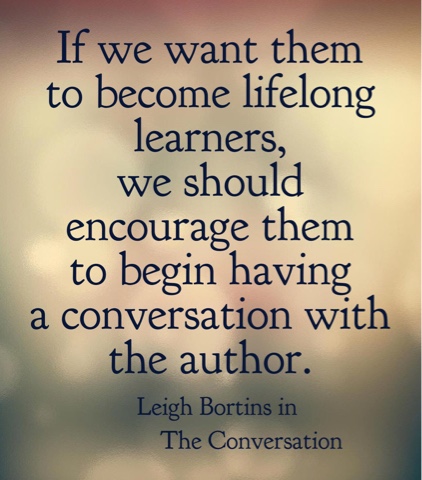My first introduction to Classical Conversations included reading The Core (the first book in the series) which provided insights into teaching geography and helped to change the way that I taught foundational skills. The author describes The Core as an encouragement to parents to provide a basic, thorough education for their young children.
The Question is the second book in the series and covers middle school and the importance of leading by asking questions. I have not read it yet but want to even more now.
The Conversation is the third book in this series, but they can be read in any order. "Rhetoric is, at it's root, a truth – seeking art." The majority of the book The Conversation covers specifics of rhetoric (and numerous examples) in these high school courses dubbed "the rhetorical arts": reading, speech and debate, writing, science, math, government and economics, history, Latin and foreign languages, and fine arts. The second half of part one precisely explains rhetoric. "The Conversation explains the five canons of rhetoric in light of real assignments...and real conversations." Other topics include games and devices for facilitating communication, encouragement for parents homeschooling high school students to do so with confidence, and a graduation conversation.
 The book is written to parents who are currently homeschooling high school or considering doing so. It is not a book that I passed on to my daughter to read after I finished reading it. It did, however, lead to more discussions and influence our ongoing high school planning for both of my daughters. "We must engage in conversations about things that matter: God, truth, goodness, love, beauty, virtue, and grace."
The book is written to parents who are currently homeschooling high school or considering doing so. It is not a book that I passed on to my daughter to read after I finished reading it. It did, however, lead to more discussions and influence our ongoing high school planning for both of my daughters. "We must engage in conversations about things that matter: God, truth, goodness, love, beauty, virtue, and grace."
Practical suggestions are provided to guide parents in engaging in meaningful conversations with their children. "I believe that the best way to learn is to have conversations with someone who is interested in the topic." Thinking deeply, carefully choosing words, and asking questions can prepare our children for leadership. Conversations about why history matters leads to more depth of thought than memorization of facts learned when they are younger.
My senior is studying government this year, so I especially appreciated chapter 8: Government and Economics. Not only being able to recognize objective truth but also to apply it to other situations can begin with a series of questions. Such questions applied in conversations about our government can lead our students to ask "should I vote this way?"
"If we allow our children to think about important ideas, discussing them becomes natural."
Some of the concepts used in classical conversations communities are explained in this book. From taking ownership (of their education, life, faith, and more) in seventh grade, then progressing through discipleship, freedom, and consequences. We have not participated in a CC community, but I feel like we can follow her steps to carry out some of their best features at home.
Do you enjoy conversations with your children? If you are homeschooling high school, if you have questions about the rhetoric stage of classical education, if you want ideas for meaningful conversations, then consider reading this book.





No comments:
Post a Comment
comments from friends: